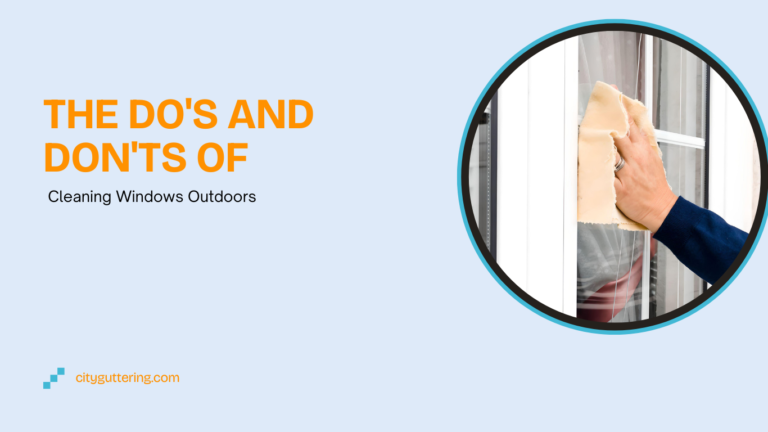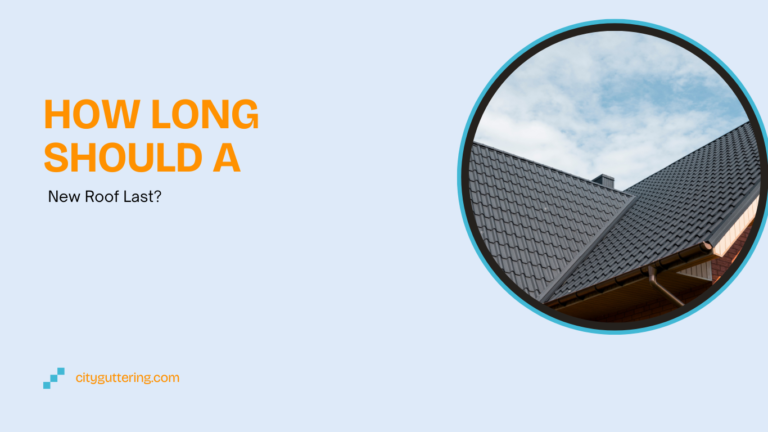When it comes to designing or upgrading your garden, few decisions have as much long-term impact as your choice of ground cover. For homeowners across London, Surrey, and surrounding areas, choosing between rock and mulch can influence not only the look of your garden but also its maintenance, drainage, and even the health of your gutters.
Is It Better to Use Rock or Mulch in Your Landscaping?
In this guide, we’ll explore the pros and cons of each option, explain how they interact with your guttering system, and help you decide which material suits your home’s needs best.
The Basics: Rock vs. Mulch
At a glance, the choice may seem cosmetic, but there’s much more to it. Rock and mulch serve different purposes in landscaping, and your selection should depend on a few practical factors like climate, maintenance capacity, and how close your garden beds are to the home’s gutters.
Mulch is typically organic (like bark, wood chips, or compost), though inorganic options like rubber also exist. It’s often used to retain moisture, suppress weeds, and nourish the soil.
Rock, on the other hand, includes materials like pea gravel, river stones, or crushed granite. These are valued for their durability and neat appearance.
The Case for Mulch
Types of Mulch
- Organic Mulch: Wood chips, bark, straw, compost
- Inorganic Mulch: Rubber, plastic sheeting (less common for decorative landscaping)
Mulch is popular for good reason. Its natural appearance blends well with greenery, and it actively contributes to healthier soil. Here are some key advantages:
Advantages of Using Mulch
- Soil Moisture Retention: Mulch helps lock in moisture, reducing the need for frequent watering.
- Weed Suppression: A thick layer can limit weed growth significantly.
- Soil Health: As it breaks down, organic mulch adds nutrients to the soil.
- Temperature Regulation: Mulch insulates the soil, keeping roots cooler in summer and warmer in winter.
- Visual Warmth: Offers a softer, more natural aesthetic for flower beds and borders.
Drawbacks of Mulch
Despite the many benefits, mulch has its downsides:
- Short Lifespan: Organic mulch decomposes over time and needs to be replenished regularly. typically once a year.
- Potential Pest Attraction: If applied too thick or used improperly, it can attract termites or ants.
- Displacement in Rain: In heavy rains (common in parts of London), mulch can wash into drains and gutters, leading to clogs or overflow.
The Case for Rock Landscaping
Types of Landscaping Rock
- Pea gravel
- River rock
- Crushed stone
- Lava rock
- Marble chips
Rock is favored in low-maintenance gardens, especially in areas prone to harsh weather or drainage issues.

Benefits of Using Rock
- Long-Term Durability: Unlike mulch, rocks don’t break down or require yearly replacement.
- Low Maintenance: Once placed, they remain stable with minimal upkeep.
- Excellent Drainage: Rocks facilitate water flow, helping prevent puddles and flooding.
- Pest Resistance: Rocks don’t decompose and won’t attract insects.
Challenges of Using Rock
- Higher Upfront Cost: Rocks tend to be more expensive to install than mulch.
- Heat Retention: Rocks can become quite hot under direct sunlight, which may harm delicate plants.
- No Soil Benefit: Rocks do not improve soil health or provide nutrients.
- Heavy to Move: Adjusting or removing them later is labor-intensive.
Factors to Consider Before Choosing
When deciding between mulch and rock, consider these key points:
1. Climate and Weather Patterns
If you live in a part of London that gets frequent rain, mulch may wash away unless properly bordered. Rock handles water better and is ideal for sloped gardens or around downspouts.
2. Maintenance Levels
Mulch requires regular replenishment and monitoring for pests. Rock requires little more than occasional weeding between stones.
3. Drainage Needs and Gutter Proximity
This is particularly important. If your flower beds or landscaping are close to the base of your house, the material you use can affect your gutters and drainage.
- Mulch can clog gutters and downspouts during storms if washed away.
- Rock can act as a buffer, reducing erosion and helping water flow away from the home.

4. Cost and Long-Term Investment
Mulch is affordable up front but adds up with annual replacement. Rock is a higher initial investment but pays off over time.
5. Visual Preference
Some homeowners prefer the soft, natural look of mulch; others appreciate the clean and tidy appearance of stone. A combination of both is common in multi-zone gardens.
How Landscaping Affects Your Gutter System
Landscaping decisions do more than add beauty. they directly affect how well your home handles water. At City Guttering London, we’ve seen how unchecked mulch runoff can clog downpipes and gutters, especially in homes without proper gutter guards.
Landscaping rock, especially around gutter downspouts, can support better drainage and reduce the likelihood of erosion or gutter overflow.
If you’re planting close to your property’s edge, be mindful of water flow. Poor grading or runoff can push mulch and debris into your gutter system. This not only shortens your gutters’ lifespan but may also lead to internal damp issues, especially in older London homes.
Expert Insight: Rock vs. Mulch – Which Should You Use?
There’s no universal answer. It comes down to where and why you’re applying the material.
- Use mulch in garden beds where soil health matters and moisture control is a priority.
- Use rock in areas prone to runoff, erosion, or foot traffic, especially near gutters and paths.
Many homeowners choose to combine both materials, using mulch in the main garden and rock around structural edges, drains, and downspouts.

Quick Reference Comparison: Rock vs Mulch
| Feature | Rock | Mulch |
| Lifespan | 10+ years | 1–2 years |
| Maintenance | Low | Moderate |
| Soil Enrichment | No | Yes |
| Cost (Initial) | Higher | Lower |
| Pest Resistance | Strong | May attract pests |
| Works Near Gutters | Yes (supports drainage) | No (may clog drains) |
| Aesthetic | Clean, structured | Natural, earthy |
Landscaping and Gutter Health Go Hand in Hand
At City Guttering London, we always encourage property owners to look beyond surface design when landscaping. What lies beneath matters just as much. especially when your choice can affect how water flows around your home.
Whether you’ve recently refreshed your landscape or plan to, it’s always wise to inspect your gutters afterwards. Displaced mulch or debris buildup can silently create long-term issues.
Final Thoughts
Is it better to use rock or mulch in your landscaping? It depends on your goals:
- Go for mulch if you want healthy plants and a classic garden feel.
- Choose rock if your priority is durability, clean edges, and drainage support.
- Combine both strategically to get the best of both worlds, visual interest and function.
And remember, whatever material you choose, proper drainage is key. If water doesn’t flow away from your home efficiently, you risk gutter backups, fascia rot, and even foundation trouble.





